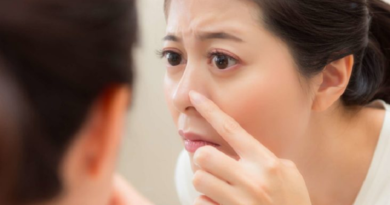How do I stop feeling dizzy?
Dizziness is defined as a sensation as if you are spinning or moving or the world is spinning around. It is usually a temporary feeling which leads to a sense of your balance is bad and often makes you feel you might fall down. The term dizziness and light-headedness are often interchangeable and it could mean different things to different people. If you ask a doctor, you would find that many people describe the feeling of feeling faint or off-balance as dizzy or lightheaded. In this article, we will be learning more about dizziness and what you can to stop the dizzy feeling.
Dizziness is a common problem. It is so common that you are guaranteed to at least have one episode of this feeling throughout your life. It is usually not a serious issue but that does not mean it could not be a serious problem such as a sign of stroke. While most dizziness is indeed harmless, dizziness with chest pain or shortness of breath, severe headache, changes in vision, hearing or speaking, feeling weakness or numbness, seizures, persistent vomiting, stiffness in neck, high fever or dizziness after a head injury, should be seen as a serious threat. If you find yourself with any of these symptoms following a dizziness, you should immediately get medical help. Dizziness that occurs frequently should be addressed to a doctor.
There are many causes of dizziness. To understand the possible cause behind dizziness, doctors usually will ask questions to help narrow down the causes. Questions such as how long the dizziness lasts, how does the dizziness feel, what was the last activities done before dizziness occur, other symptoms apart from dizziness, what you have done to reduce the dizziness and does dizziness actually went way at all, are among the common questions. Below are the common causes being the culprit of dizziness:
- Dehydration such as not drinking enough fluids or staying in hot weather
- Low blood sugar (hypoglycaemia) after heavy physical activities or not eating enough calories throughout the day
- Sudden drop in blood pressure that occur after sitting up or standing too quickly (orthostatic hypertension)
- Poor blood circulations from heart diseases such as irregular heartbeat or brain problems such as stroke
- Spinning sensation from moving the head as a result of the tiny crystals in the inner ear become dislodged (benign paroxysmal positional vertigo)
- Ear infection
- Rare disorder of the inner ear characterised by ringing in the ear and hearing loss (Meniere’s disease)
- Side effects of certain medicines
- Low level of iron in blood (anaemia)
- Anxiety disorders
Although dizziness can occur to anyone, the risk for dizziness is high as you age. It is most common in those aged 65 and above. This could be because the ageing process itself causes changes in the body and medications they take. Underlying health conditions can be benign or serious ones and for sure can affect anyone regarding how old they are.
Now that you know the many causes of dizziness and when you should be worried of dizziness, you might wonder what you can do to stop feeling dizzy. We all understand how dizziness can be a great nuisance. Thus, by knowing and trying steps to stop the dizziness, it can provide relief and help you to resume with your daily routine. Below are ways you can take to stop dizziness:
1) Lie down until the dizziness goes away and slowly get up.
2) Try to move slowly and carefully while waiting for the dizziness to pass.
3) Avoid sudden bending down and getting up suddenly after sitting or lying down.
4) Get plenty of rest and make sure to have a good night quality sleep.
5) Drink plenty of fluids, especially water.
6) Avoid being in hot temperature for too long and keep yourself cool.
7) Avoid coffee, cigarettes and alcohol that could affect the blood circulation.
8) Learn what triggers the dizziness such as noise or lights and try to be around it less.
9) Talk to your doctor if medications you are taking cause dizziness as a side effect. Ask the doctor if the medication does have side effects and if there is alternative or advice to prevent that.
Apart from trying to stop the dizziness, while waiting for the dizziness to begin, you should also be careful not to fall over and hurt yourself. Most common complication of dizziness is you may get hurt or involved in accidents. Thus, what you can do to prevent this is to avoid driving vehicle on your own when you are feeling dizzy, use handrails when walking up and down stair, install handrails in the bathroom, remove clutter from the floor to avoid tripping and injuries, practise exercise that improve balance and to talk with a doctor if you keep feeling dizzy or dizziness impact your life causing to unable to perform daily routine as usual.




